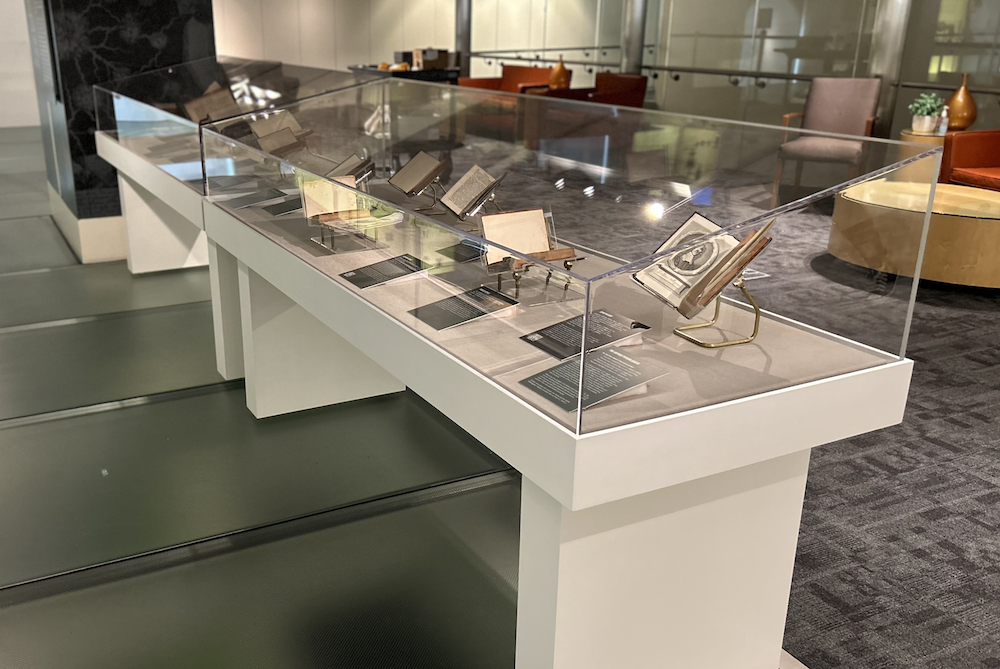Blood and Fire
From our A Closer Read series, this exhibition featured rare books that tell the story of experimental science in the 17th century.
On view June 26, 2023–January 6, 2024
Museum Mezzanine
Why does blood circulate through the body?

This question was the focus of a breathtaking research program in pneumatics, chemistry, and physiology for a close-knit group of English doctors, anatomists, and natural philosophers of the 1650s and 1660s.
Thoroughly experimental and informed by a new scientific philosophy that matter was made up of imperceptibly tiny and interacting particles, this research and debate took them to the brink of discovering oxygen. The element wouldn’t be identified for another 100 years, but their work showcased the potential of a new experimental science.
Blood and Fire tells the story of this experimental trajectory. Drawing on the Institute’s rare books collection, it includes works by William Harvey, René Descartes, and Robert Boyle, and is the first exhibition in the Institute’s A Closer Read series.
Blood and Fire was curated by James Voelkel, curator of rare books.
About A Closer Read: Stories from Our Library Shelves
A Closer Read is a new series of exhibitions featuring materials from the Donald F. and Mildred Topp Othmer Library of Chemical History. On display on the mezzanine level of the Science History Institute Museum, each exhibition uses rare books, archival materials, and modern books and journals to share new stories from the history of science. Exhibitions are on display for six months.
Featured image: Detail of plate from Tractatus de Corde : item de motu et colore sanguinis, et chyli in eum transitu [Treatise on the Heart : likewise, on the movement and color of the blood, and the passage of chyle into it], written by English physician and William Harvey follower Richard Lower, 1669. Science History Institute.
